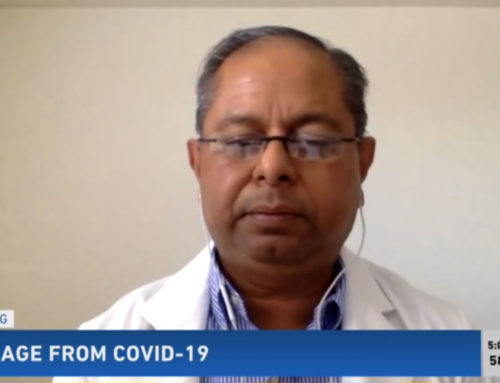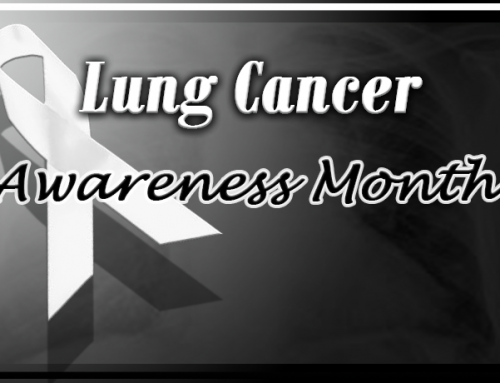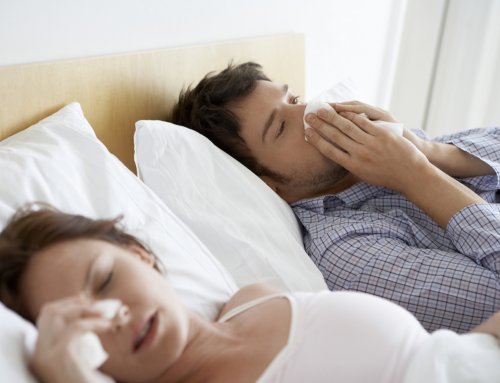Dr. Imtiaz Ahmad recently visited a lung cancer support group meeting to speak with caregivers, survivors and patients going through a lung cancer diagnosis. He spoke about screening, prevention, early diagnosis and treatment plans. He also talked about targeted therapy for lung cancer and low-dose CT scans for lung cancer screening.
“It was a pleasure speaking with patients and caregivers to give them the information they need to keep their bodies safe,” said Dr. Ahmad. “It is important to know not only the causes of lung cancer, but also how to prevent and effectively treat the cancer as well.”
Lung cancer is the leading cause of cancer death among men and women in the U.S. Each year, more people die from lung cancer than of colon, breast, and prostate cancers combined. In fact, according to the American Cancer Society, one in four deaths are caused from lung cancer. In 2017 alone, the American Cancer Society estimates over 220,000 new cases of lung cancer to arise, and about 150,000 deaths. Smokers are at a higher risk to develop lung cancer.
Medicare Part B now covers low-dose CT screenings to patients who meet all of these conditions:
- They’re 55-77.
- They’re asymptomatic (they don’t have signs or symptoms of lung cancer).
- They’re either a current smoker or have quit smoking within the last 15 years.
- They have a tobacco smoking history of at least 30 “pack years” (an average of one pack a day for 30 years).
- They get a written order from their physician or qualified non-physician practitioner.
The goal of the low-dose CT lung cancer screening is to save lives through early detection. It is recommended on an annual basis for high-risk patients.
Since lung cancer does not necessarily have symptoms, you should consider talking with your doctor about whether screening is right for you. Allergy Sleep & Lung Care provides both screenings and treatment for lung cancer.
Even though there are no sure-fire ways to prevent lung cancer, you can reduce your risk of getting lung cancer if you do not smoke. If you haven’t ever smoked: don’t start. Also, it is a good idea to avoid secondhand smoke if possible as this also reduces your risk of lung cancer.
It is important to make sure that not only your family is safe, but your community as well. Raising awareness of lung cancer can lead to a decrease in new cases. Learning how to prevent lung cancer and being educated about the disease can allow you and your community to take the actions needed to keep yourselves safe and healthy.






Leave A Comment